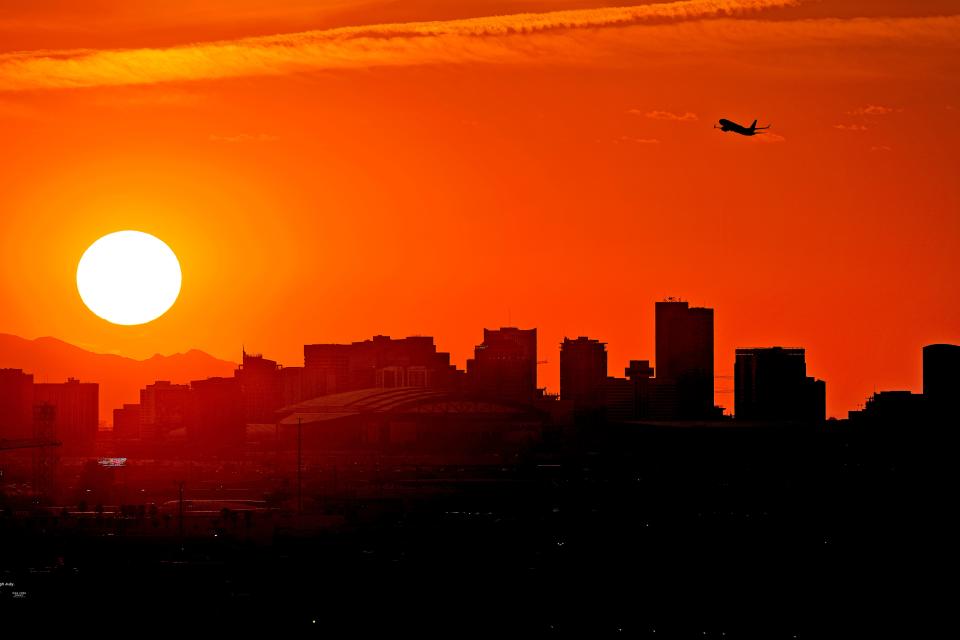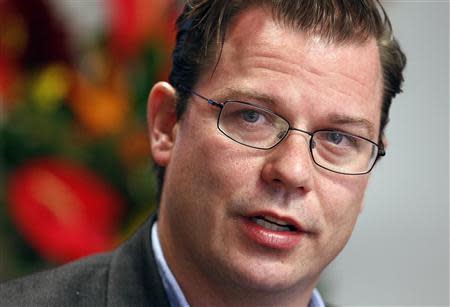Climate change isn't a top issue for Democrats or Republicans. Record heat should change that.
Extreme weather events are on the rise. States across the south-central and western U.S. are roasting. New York to New England is dealing with catastrophic floods. After years of drought, California went the opposite way and experienced one of the wettest winters in decades. And the across the country, smoke drifting down from vast uncontrolled wildfires in Canada are casting a literal pall over many Americans’ summer plans.
July 6 saw the hottest day on record for the entire world, the last in a string of four record-setting days. Climate scientists say we are at the environmental tipping point – the point of no return. Public opinion polls show a supermajority of Americans are concerned about the environmental emergency.
So why isn’t climate change the central focus of government efforts? Why isn’t more being done?
It’s because, for most Americans, climate change is simply not the most important problem facing the nation. It's not even in the top three. When you ask Americans their single top concern, climate ranks lower than the economy, crime and immigration. Climate change is at about the same level as other second- or third-tier concerns such as inequality, health care or morality.

While in earlier generations, public officials might have set aside fierce contemporary debates to focus on more existential matters, today’s politicians intuitively follow what I call the “85% rule”: This analytical rule of thumb suggests that the presidential candidate who is most trusted on the biggest political issue of the day wins the election 85% of the time. Think Bill Clinton and “it’s the economy” in 1996, George W. Bush and national security in 2004, or Joe Biden and COVID-19 in 2020.
Simply put, being “right” on climate change still does not decide elections, so we are unlikely to see politicians spending much effort on the issue.
Are we doomed to slowly roast while government does nothing? Not necessarily.
Concern over climate change has slowly been bubbling
Most Americans (86%) know adverse weather and climate events are on the rise. As these calamities impact people directly, cognitively, emotionally and physically, this is the grist of the political mill.
To date, climate change has been an abstract concept for most people, impacting the world in the future. Any urgency has come from elites who have the resources to worry about problems with a multidecade horizon. Look at things like the somewhat confusingly named “Inflation Reduction Act,” which provided massive investments in clean energy and addressing climate change but was mostly sold as a measure to reduce inflation.
The horizon, however, is now approaching for everyone – fast.
This slow march of events is producing a cumulative change in attitudes. Over the past 10 years, concern about climate change has slowly but surely ticked upwards – sevenfold since 2012.
Can I buy a house? GOP isn't interested in Gen Z. Republican Party has abandoned young conservatives like me.
Will the climate change too fast before public opinion boils into action?
This, without a doubt, is a function of the increasing number of adverse weather events. The question is whether climate will change too much before public opinion finally demands the necessary action, expenditures and sacrifices.
In the period of 2018 to 2020, the number of Americans listing climate change as their main concern tripled, to about 12%. Even with a global pandemic and the worst inflation in decades, the level of concern over the environment has more than doubled from 2018 to now.
If present trends continue, climate change will become the driving force in American politics within 10 years, especially as Americans witness the way environmental factors spill over to affect other priorities such as the economy, inequality, immigration and crime.
Flight delays are unacceptable. Don't blame weather, it's the FAA who needs to step up.
As the issue heats up, expect to observe a bifurcation in the politics of climate change from the policies of dealing with climate change, pitting red versus blue states. Resisting the “green economy” has become a part of the Republican culture war on the “libs.” Even as severe weather alternately drowns and roasts the Southern and Midwestern states dominated by Republicans, we should not expect to see the party come around and embrace a climate agenda in the short term.
Opinion alerts: Get columns from your favorite columnists + expert analysis on top issues, delivered straight to your device through the USA TODAY app. Don't have the app? Download it for free from your app store.
At the same time, Republicans are more than happy to pass legislation or claim credit for policies that provide for local benefits or a cushion against the worst effects of climate change. Just look at the Republicans who voted against the Inflation Reduction Act now claiming credit for local investments.
Or instances like the recent Florida effort to provide homeowner insurance after private insurers decided the state was too risky for their money.

Climate change will become a bipartisan issue in the long term. But the future is already here. When billion dollar disasters strike, businesses and jobs are among the victims. Inequality extends to exposure to environmental risk, as poorer Americans are often on the front lines of flooding, fires, water contamination and bad air quality. Immigration is increasingly driven by acute natural disasters and the effects of climate change on land fertility and habitability. Crime spikes when resources get scarce.
Climate change is already at the center of our politics. Public opinion is starting to catch on.
Clifford Young is president of U.S. Public Affairs at Ipsos.
You can read diverse opinions from our Board of Contributors and other writers on the Opinion front page, on Twitter @usatodayopinion and in our daily Opinion newsletter. To respond to a column, submit a comment to letters@usatoday.com.
This article originally appeared on USA TODAY: Heat waves are scorching US. Will voters care about climate change?

